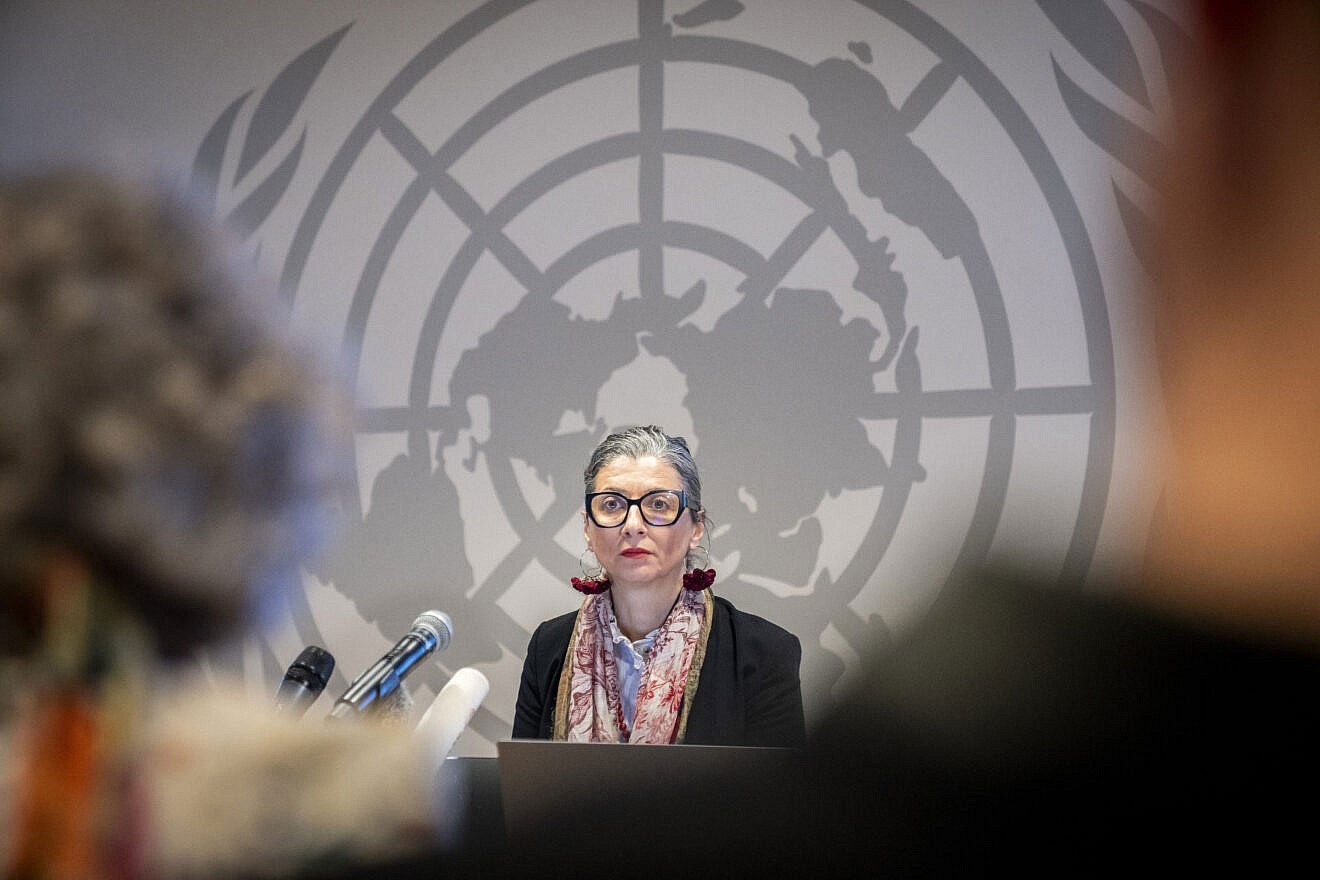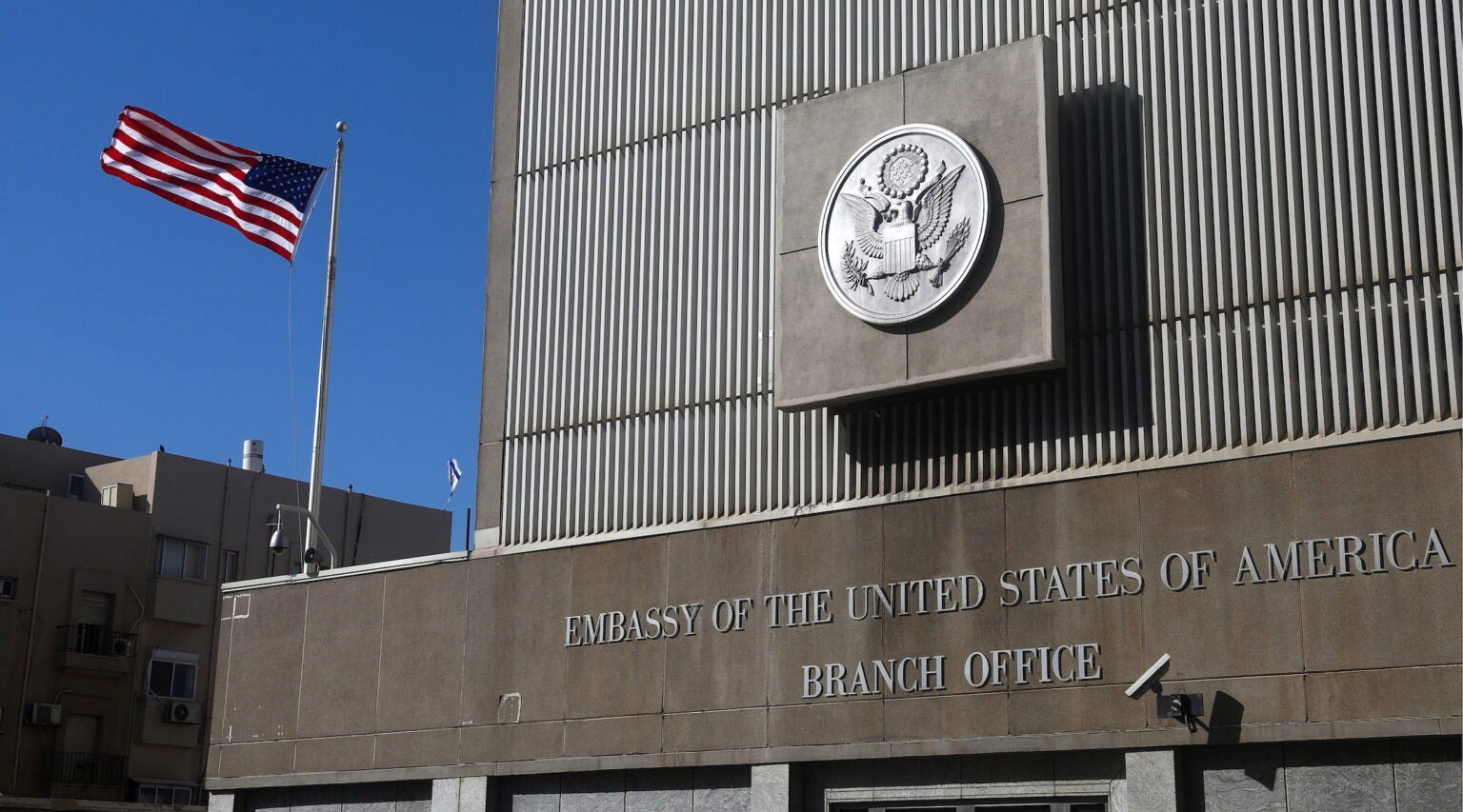
Courtesy of JNS Photo credit: Vilna Gaon State Jewish Museum
Lithuanians massacre Jews at the Lietūkis garage during the Kaunas pogrom, June 27, 1941.
(JNS) Holocaust distortion and trivialization and banalization are on the rise around the globe, even as outright denial is relegated to the fringes of society, the head of Yad Vashem says.
The remarks come at a time when multiple European countries seek to whitewash their roles in World War II by highlighting the heroes among their countrymen while obscuring or outright denying the actions of collaborators who participated in the murder of six million Jews.
“The good news is that outright Holocaust denial is today marginal,” Dani Dayan, the chairman of Yad Vashem, said in an interview with JNS ahead of Israel’s Holocaust Remembrance Day on Monday evening/Tuesday daytime. “No serious person will deny that the Holocaust happened except in lunatic fringes on social media [for example] in Iran or Malaysia.”
“On the other hand, we see a very worrying rise in Holocaust distortion which is no less disturbing,” he added.
Dayan said that multiple governments and groups in European countries are actively promoting an outright “historical fallacy” whereby their countries only helped Jews during the Holocaust while denying their people’s collaboration with Germany.
“They highlight the Righteous Among the Nations while obscuring or denying that there were many more collaborators than righteous,” he said, referring to the honor bestowed by Yad Vashem upon non-Jews who saved Jews at the risk of their own lives.
“This distortion is an affront to the victims,” Dayan said.
He listed multiple “Western as well as Eastern” European countries where this is happening: France, where last year a Jewish presidential candidate—Éric Zemmour—promoted the historical fallacy that the collaborationist Vichy regime was favorable to the Jews; Poland, which denies the widespread collaboration with the Nazis, something Dayan called “very problematic”; Bulgaria, which highlights the salvation of its Jews but neglects the crimes it committed against foreign Jews, as well as leaders of the Baltic states, who, like many others, highlight their Righteous countrymen while ignoring the greater reality.
“Most European countries do not excel in looking into their past and recognizing their sins,” Dayan said. “The easy way, the pleasant way, to remember the Shoah is to commemorate the Righteous. Nations should not only look into the good that some did [also] but into the horrendous acts that some of their people did.
“Our mission is to bring countries to fully recognize their actions in the Shoah—to honor the good and to repent the bad,” he said.
Trivialization and banalization
In the interview, Dayan also called out the trivialization and banalization of the Shoah that was rampant during the COVID-19 pandemic, with “outrageous comparisons” drawn between the green passes of those vaccinated and the yellow stars the Nazis forced the Jews to wear, as well as in the Russian war in Ukraine where, he said, both sides misuse the Shoah for their propaganda.
He cited both the Russian narrative that Moscow had to “de-Nazify Ukraine,” and the Ukrainian retort that Israel should help them as they supposedly assisted the Jews during the Shoah, when, in fact, there was widespread collaboration by Ukrainians in the slaughter of the Jews.
“We see that awareness of Shoah is growing but we have to be sure this awareness is not misused to distort and trivialize the Shoah in a propaganda war,” Dayan said.
Antisemitism in the U.S.
Dayan, previously Israel’s consul general in New York, said that he was surprised how antisemitism has taken hold in the U.S., a subject he thought would be low on his agenda during his time in a country that does not have the same history of antisemitism as Europe.
He said that a synergy had been created between four streams of antisemitism in the U.S.: neo-Nazi white supremacists; ideological Black antisemitism; hooligan antisemitism; and antisemitism thinly veiled as anti-Israel rhetoric.
Lessons of the past
Dayan said that while the situation today was emphatically not that of Germany in the 1930s, we have a responsibility to learn from the past.
“We have the experience they lacked,” he said. “We don’t have the privilege to say it can’t happen, because it happened. They were entitled to that terrible naivete; we are not.”
Dayan said that the message he shares with foreign dignitaries is that “Never again” is now.
“Antisemitism must be confronted and stopped immediately before it develops into monstrous dimensions and then it will be too late to stop,” he said. “When you say ‘Never Again,’ then if you mean it, never is now.”




